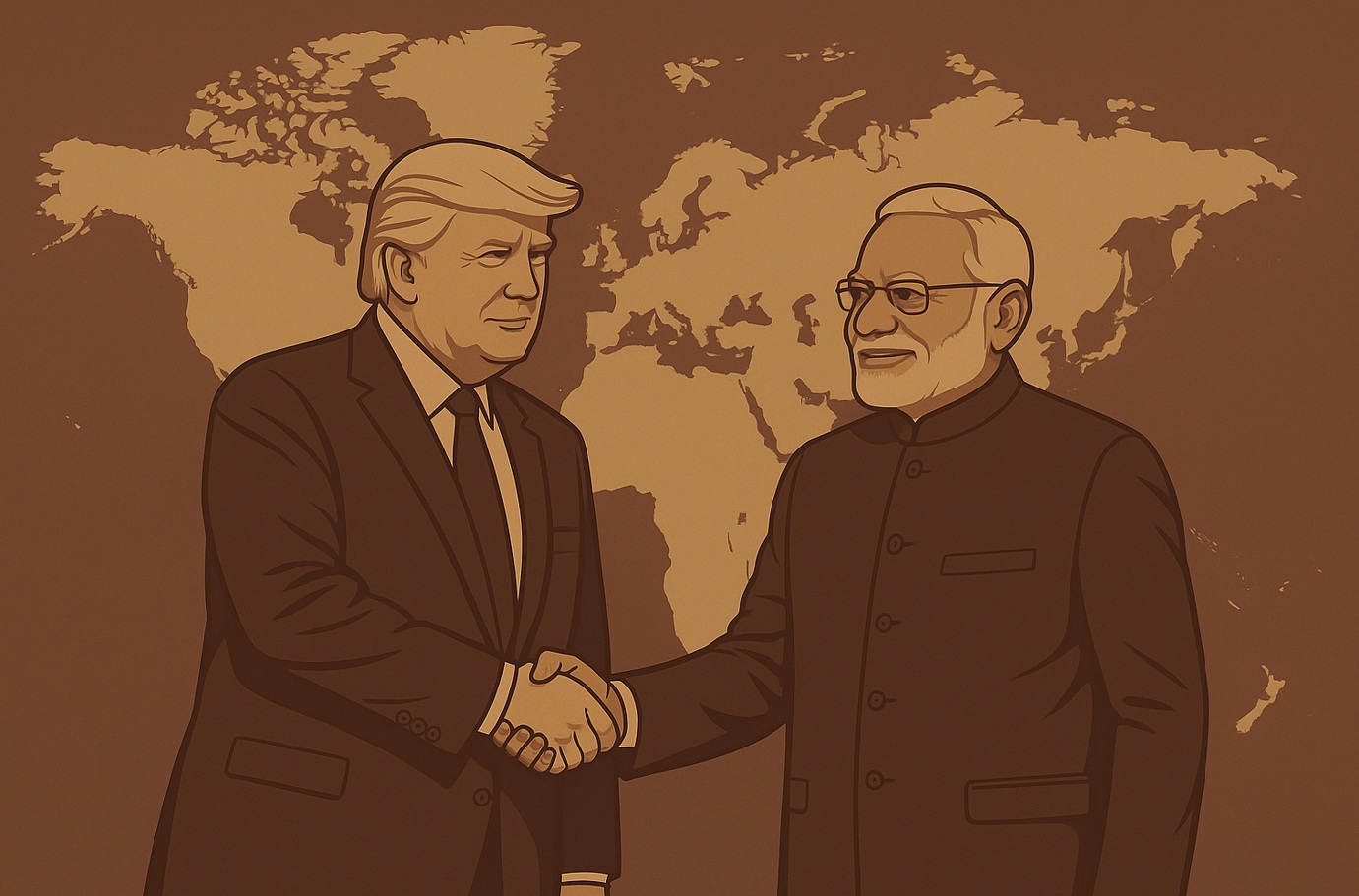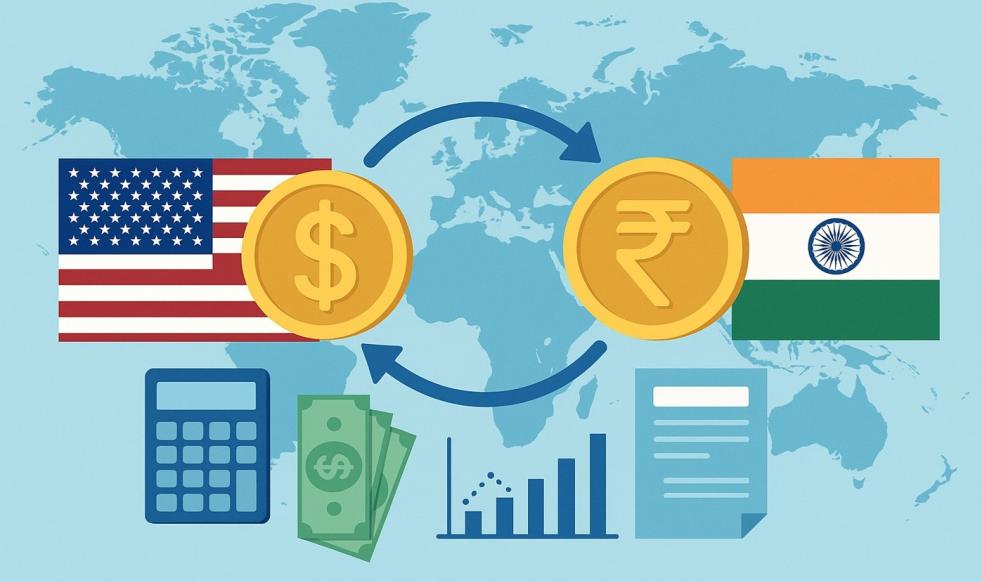A legislative proposal currently under consideration in the United States Congress has sparked alarm among members of the South Asian diaspora, amid fears that a proposed tax on remittances could burden immigrant families and impact economies across the subcontinent.
The bill, put forward by Republican lawmakers, would impose a fee of up to 5% on money sent abroad by individuals residing in the United States. While supporters frame the measure as a means to bolster border security and fund immigration enforcement, critics say the plan risks penalising legal immigrants and US citizens who regularly send financial support to families overseas.
Potential Billions in Additional Costs
According to the World Bank, Indian-origin residents in the United States sent nearly $17 billion to India in 2023 alone. When including transfers to neighbouring countries — such as Pakistan, Bangladesh, Nepal, and Sri Lanka — remittances from the broader South Asian community add up to a significant portion of international transfers originating from the US.

Estimates suggest that the proposed fee could cost senders as much as $1.6 billion annually — money that typically goes towards essential expenses such as education, healthcare, housing, and daily living costs in recipients' home countries.
“This would be a devastating financial blow to countless families who rely on regular remittances,” said Dr Rupa Venkatesan of the Centre for South Asian Studies in New York. “For many households in South Asia, these funds are not discretionary. They are essential lifelines.”
What the Legislation Entails
The draft law would mandate financial institutions and money transfer operators — from established names like Western Union to digital platforms such as Remitly and Wise — to collect the new fee on remittances sent to a list of more than 40 countries, most of them in the Global South.
Supporters argue the fee ensures undocumented workers contribute to the tax system and helps pay for border security infrastructure. But immigration advocates point out the legislation does not distinguish between undocumented immigrants and legal residents or even naturalised US citizens.
“This is a blunt instrument being used to address a complex issue,” said Amit Sharma, a policy analyst with the American Immigration Council. “It sweeps in a wide range of legal, law-abiding immigrants under the guise of immigration reform.”
Economic Ripple Effects in South Asia
The consequences of the proposed tax are likely to extend far beyond American borders. In countries such as Nepal, where remittances constitute over 20% of GDP, a reduction in inflows could prove destabilising. Bangladesh and Pakistan also rely heavily on remittance income, which contributes between 6% and 8% of their respective GDPs.

“Any decline in remittances would immediately affect rural and low-income households,” said Farzana Ahmed, a development economist based in Dhaka. “These transfers are often used for food, medicine, school fees, and rent. Without them, poverty rates could rise sharply.”
There are also concerns that taxing formal transfers may drive some remitters towards unregulated informal systems, such as hawala networks, which are harder to monitor and prone to abuse.
Community Mobilisation and Backlash
Across the United States, members of the South Asian diaspora have begun organising in response to the proposed tax. In states such as New Jersey, California, and Texas — home to large Indian, Pakistani, and Bangladeshi communities — local leaders are holding town halls and encouraging constituents to contact their congressional representatives.
Some see the bill as not only economically harmful, but morally troubling, particularly given the role played by South Asian workers during the COVID-19 pandemic in fields such as healthcare, logistics, and engineering.
“There’s a persistent narrative that casts immigrants as takers,” said Sanjay Patel, a software engineer in San Jose. “But we’re also givers — to our communities here in the US, and to our families back home. Policies like this overlook that contribution.”
Political and Legal Outlook
The proposed bill faces a lengthy legislative process, with several committee stages and full votes in both chambers of Congress required before it can become law. In a politically divided climate, that may prove a challenging path.
Democratic lawmakers have already voiced opposition. “Taxing personal remittances is regressive and unjust,” said Congresswoman Priya Desai of California. “We should be encouraging transparent financial flows — not penalising families who are doing the right thing.”
Legal experts have also raised questions about whether the bill could violate equal protection laws, as its impact is expected to fall disproportionately on certain ethnic and national groups.
A Broader Conversation About Belonging
While the bill is officially positioned as a fiscal and security measure, it has ignited a wider debate about inclusion, fairness, and how immigrant communities are viewed in American policymaking.
The South Asian population in the US is among the most educated and economically successful ethnic groups, with Indian-Americans holding the highest median household income of any demographic. Yet moments like these, say advocates, highlight the fragility of that success in the face of political rhetoric.
Advocacy groups are planning letter-writing campaigns, media outreach efforts, and direct lobbying in Washington in the weeks ahead. Financial service providers, who stand to lose billions in annual transactions if the tax reduces remittance flows, are also expected to voice their concerns.
For now, the fate of the bill remains uncertain. But the debate has underscored a growing determination within the Desi diaspora to make its voice heard — not only in matters of finance, but of identity, equity, and the promise of America itself.

 304 Views
304 Views 0 comments
0 comments
Comments